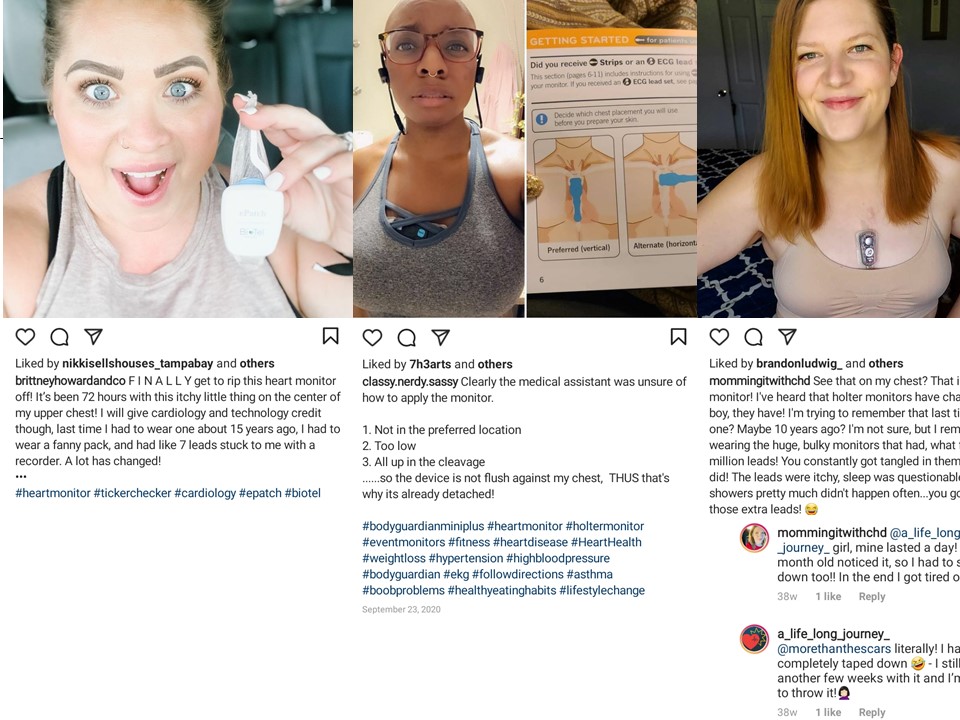A chain of events are transpiring which are bound to disrupt the cardiac monitoring device and healthcare industries.
Most recently, the obvious events: 3 acquisitions– Biotelemetry at $2.8B, Preventice Solutions at $925M and BardyDx at $375M by Phillips, Boston Scientific and Hillrom respectively. Adding up to over $4B+ in the ECG cardiac monitoring industry all within 35 days. Consumer ECG is widely available now on the most sold smartwatch brands, Apple, Fitbit and Samsung. And, maybe the most obvious, the increased demand for remote patient monitoring due to COVID-19.
Let’s talk about the not so obvious events: Awareness on inequity in healthcare is on a rise. Accumulated evidence on sex and ethnicity differences in the cardiovascular system is a wake-up call. The reality of the unmet needs for women and diverse populations in this space has provoked a growing understanding among researchers and funding bodies that sex and race need to be taken into account in study designs. Many clinicians are actively taking action by advancing research, creating women’s heart centers and building programs to support specific fields such as Cardio-Obstetrics and others. And maybe the least talked about by those deep in the cardiac monitoring space: the power of real people sharing real experiences. Social media can rapidly spread the word by influencers of all kinds, and women are the ones most often sharing misdiagnoses, discomfort and hard moments with treatments.
Although history shows great strides made in the fight for equality, including women’s suffrage and inroads in equal opportunity in the workplace and education. What about healthcare? Throughout history, health-related research predominantly involved male subjects and therefore guidelines, treatment options, and the like are significantly based on male standards. No wonder women undergo and share subpar experiences.

Talk about a rapid-beating opportunity. By combining the obvious, and the not so obvious and reflecting on historical trends for societal and economic impact. Technology is advancing and bound to fix these challenges faced by a huge part of the population. Building algorithms that don’t fall into biases and understand sex-differences is highly important. We call this the growing field of making medicine truly personalized. The world we live in is demanding that we have the right tools to understand each individual’s unique physiology.
This February 2021, Heart Health month, we invite you to celebrate the progress in cardiovascular disease in women and take some time for reflection about where we are today on this topic: health equality, women’s health, femtech —they are all part of the evolving movement on women’s rights. Progress in the making. Here are 3 ways to learn more, for your health and the health of your loved ones and to join the conversation to support progress in this field:
- Watch Ms. Diagnosed (2020). An award-winning documentary film by the Emmy award winning team Tricia Regan, Dr. Jennifer Mieres, Dr. Stacey Rosen, and Lori Russo that takes you through the personal journey from overlooked symptoms, to overdoses on medications, to procedures ill-fitted to women’s bodies — women receive sub-par healthcare every single day, worldwide, because of basic inequality in the practice of medicine. Women are literally at risk of life and limb. Almost every disease affects women differently than it does men. And unfortunately, in most cases, diseases that are particularly debilitating to women receive less attention and research dollars than erectile dysfunction. But this film cannot take on all those diseases. This film focuses on the number one killer of women — heart disease.
- Watch A Typical Heart (2019). In just 22 minutes the documentary packs an incredible load of unforgettable facts and quotable quotes. Exploring the deadly disparity between male and female heart disease through the lens of healthcare professionals, researchers, patients, and their families.
- Follow Bloomer Tech’s social media platforms: Twitter, Facebook and Instagram. We will be celebrating and sharing the advances from amazing people who are moving this field forward, motivating us and making us excited about the future of cardiovascular health for women.
If you are reading this, you may be as committed as we are to taking action to improve women’s heart health. After you take the 3 steps above, you will probably look at the chain of events as clearly as we do and realize it too: The future of cardiac monitoring…. IS FEMALE, at Bloomer Tech we are committed to making this happen and we know you are too.
Happy Heart Month <3

